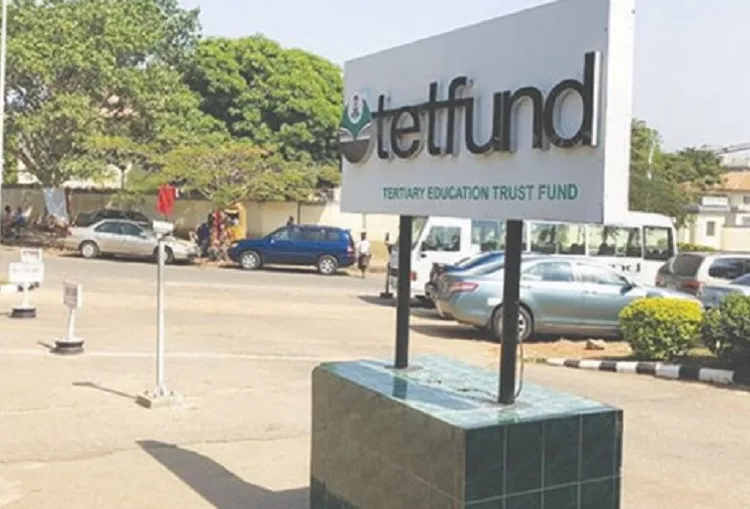The Tertiary Education Trust Fund (TETFund) has announced that it is introducing a special intervention in medical simulation and innovation under its 2025 Intervention.
Chairman of the TETFund Board of Trustees, Hon. Aminu Bello Masari, said the move, which is part of the fund’s commitment to support the government’s efforts to transform Nigeria’s healthcare system, would, among other things, address patient safety and quality of care.
Masari disclosed this while inaugurating the Adhoc Committee on Medical Simulation and Innovation Special Intervention on Tuesday in Abuja.
He emphasised the importance of medical training and research, describing them as critical to the sustenance of any society.
“Accordingly, considering the state of our public healthcare system, investment in healthcare innovation is urgently needed in Nigeria’s healthcare system to leapfrog to world-class medical practice.
“Thus, two areas of healthcare innovation would make the biggest impact: medical simulation and digital health (telemedicine and remote patient care). Investment in these two critical areas of medical innovation simultaneously is essential for maximum benefits.
“Simulation-based learning is a state-of-the-art approach to the education and training of healthcare personnel across all fields of medicine. It offers a unique opportunity to create realistic scenarios where healthcare professionals can practice their skills in a safe and controlled environment.
“Common medical situations or scenarios can also be simulated to increase proficiency and patient safety. The ultimate goals are to enhance critical thinking, problem-solving, and decision-making abilities, thereby improving patient safety, reducing medical errors, and saving lives,” he said.
Speaking on the benefits of medical simulation, he said it would address patient safety and quality of care, reduce unsafe practices that can lead to serious morbidities and/or mortality, and save healthcare costs by reducing medical errors, which can be very costly. Reduce preventable medical errors.
He further noted that medical simulation would “address manpower shortage in Nigeria with a doctor-to-patient ratio of 1:9083 by upskilling healthcare workers (WHO recommends a 1:600 ratio)
Support efforts to migrate to an integrated medical curriculum
Improve proficiency in several clinical skills by medical graduates rather than mere knowledge acquisition.
“Digital healthcare (Telemedicine and remote patient care) would significantly improve access to medical care by Nigerians using digital platforms that allow medical practitioners to examine and treat patients at any distance.
“Improvements in wifi technology and data penetration would enable these efforts. Patients in remote areas and small cities can be reviewed by experienced medical experts from anywhere in Nigeria and the entire world.”
Other benefits include the fact that AI-enabled technology would further enhance telemedicine platforms, especially in the areas of interpretation of medical diagnostics, procedures, and surgeries.
He said the Ad-hoc committee is chaired by a world-renowned Neurosurgeon, Prof. Wale Sulaiman.
Other committee members are Prof. Enoch Uche, Dr Kabir Mustapha, Prof. Hadiza Shehu Galandanci, Dr Lawrence Eziashi Appah, Prof. Babagana Bako, and Dr Femi Owagbemi as Secretary.
According to Masari, the committee members were carefully selected based on their individual capacities as professionals who will work collectively as a team to deliver on the task.
He said the committee has eight weeks to conduct a gap analysis of medical simulation in Nigeria and a gap analysis of healthcare innovation in Nigeria, especially around telemedicine, virtual patient care, and remote patient monitoring.
It is also responsible for “analysing identified gaps and preparing a proposal to bridge identified gaps in medical simulation and telemedicine. Improve medical education, training, and patient care based on identified community needs and population health statistics using medical simulation and innovation.”
The BoT chairman also announced that the fund is sponsoring the provision of four central multi-purpose laboratories at the University of Lagos, Bayero University, Kano, University of Port Harcourt, and University of Abuja under its 2023 and 2024 interventions.
He said the labs are part of the key research facilities needed to promote the creation of an enabling environment to enhance impactful and innovative research outputs.
Also speaking, the executive secretary of TETFund, Arc Sonny Echono, said effort was being made to improve staff enrollment in medical faculties, adding that the simulation technology will assist regulatory institutions in the Medical and Dental Council to increase the quota of each institution for more intakes.
“Medicine and Health Sciences remain the most sought out programmes by students based on JAMB records in our tertiary institutions. Currently, less than 7% of those who qualify get admitted because of this constraint,” Echono said.






